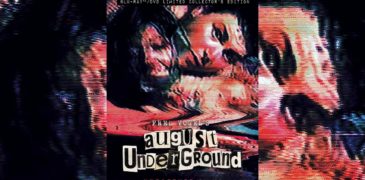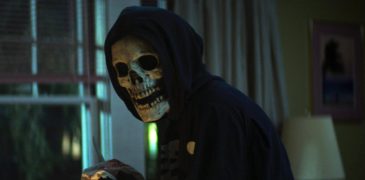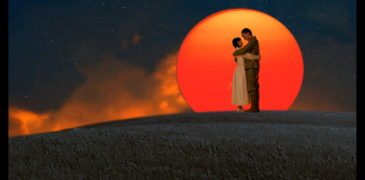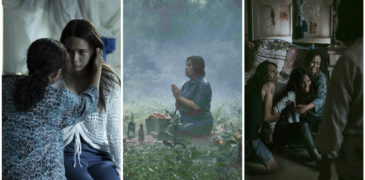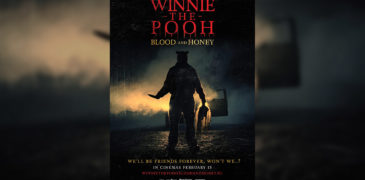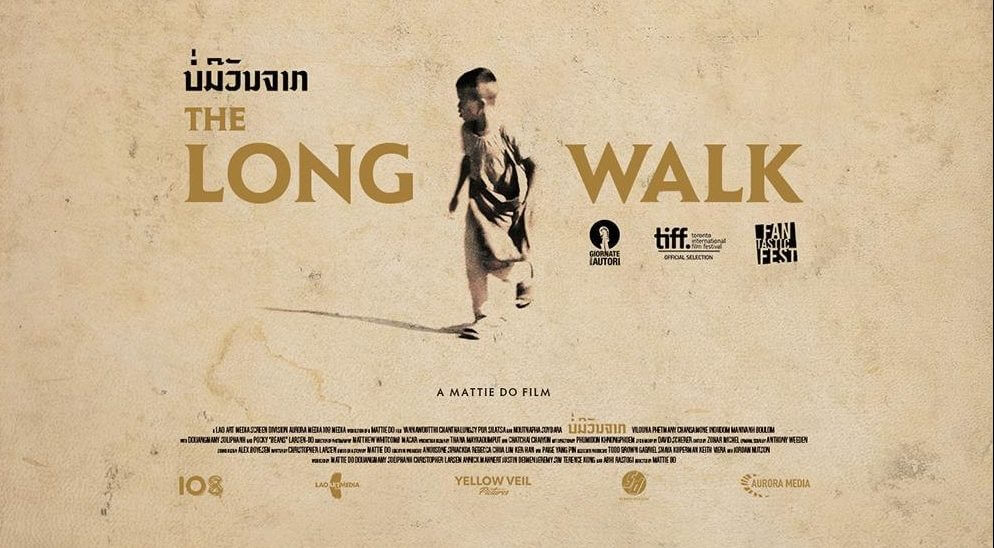
Combining elements of half a dozen genres, The Long Walk is a surprisingly cohesive supernatural time travel drama from Laos, the most recent Southeast Asian country to break onto the horror scene.
Laos’ first and only female film director, and the country’s first horror film director at all, the award-winning Mattie Do’s third film with writer Christopher Larsen is a slow-paced thinker that’s well worth the effort. An existential supernatural thriller with horror elements and a hint of sci-fi, the film is mostly a melancholic exploration of how pain and grief stay with us and change us.

The opening scene effectively sets the tone of the film; the overwhelming noise of rural life contrasted with an ever-present whining of electricity is the soundscape to dirty fingernails and rusted machine parts, buried skulls and bio-tech. Dusty yellows and murky greys dominate the colour scape.
Weaving the past and multiple presents together, we see the main character as both a young boy and an elderly man. When the boy finds a dying woman in the forest, he kindly holds her hand and stays with her as she dies. He continues to visit her rotting corpse as a means to escape his difficult home life, where his beloved mother is slowly and painfully dying of tuberculosis.
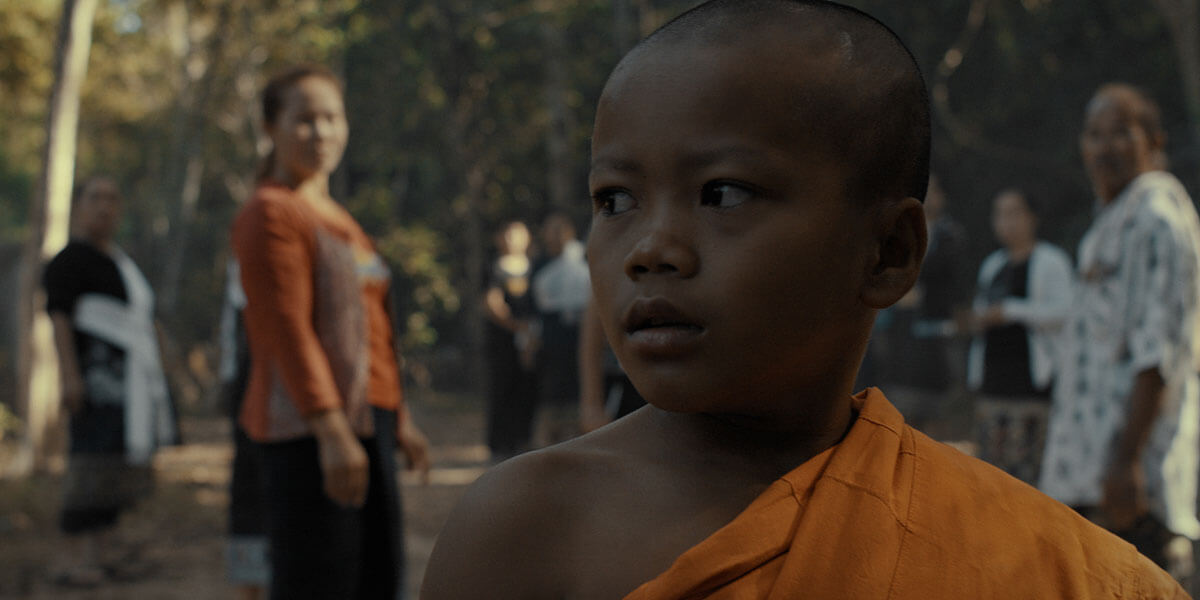
When he’s visited by the ghost of the woman in the forest, he realises two important things: firstly, that pain is alleviated through death; and secondly, that anyone who is buried in the forest is denied ascendance and stays on as a spirit. These two facts would shape the rest of his life, and then some.
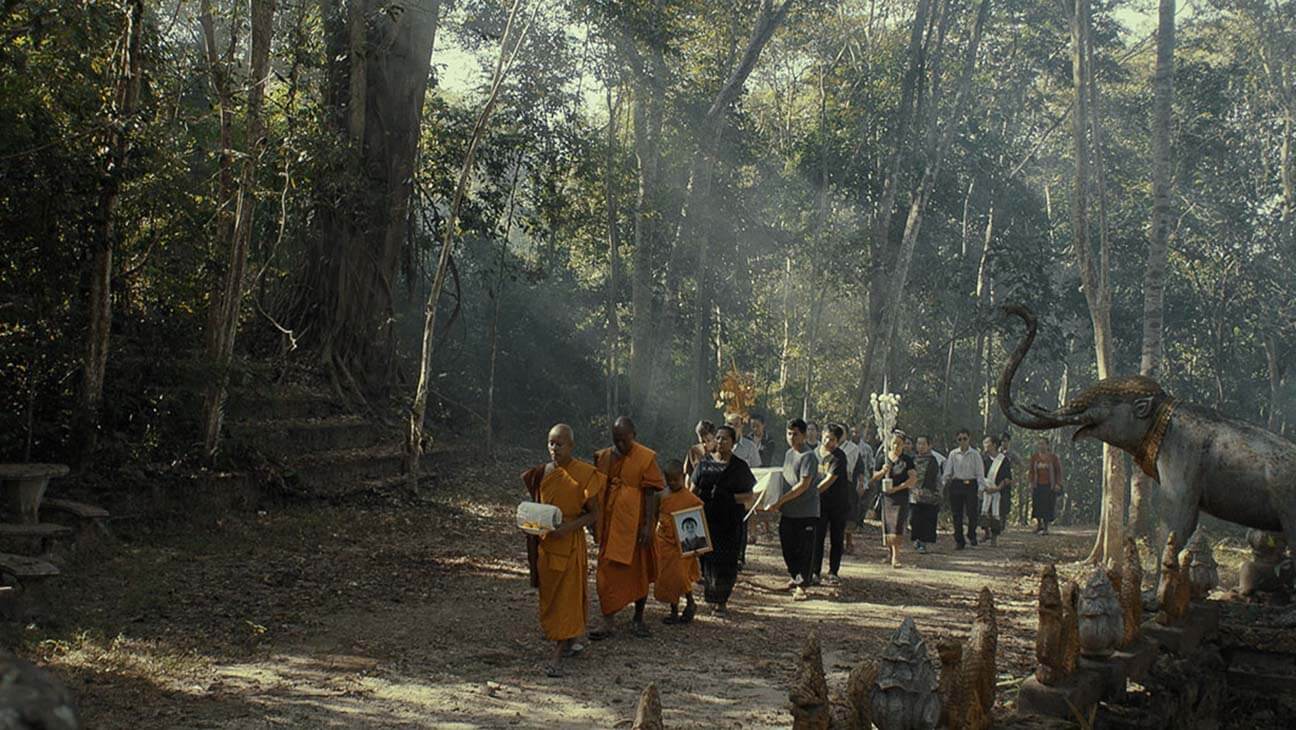
In the future, the man is visited by local policemen keen to find the body of a local woman gone missing, followed by the missing woman’s daughter who decides to stay with him while they look. The ghost he’s known his entire life then reveals an important secret: she can transport the man back in time to his childhood, where he can fully interact with himself as a youth.
Anyone who knows anything about time travel can tell you, you should never interact with your past self, and you especially shouldn’t reveal your identity. That’s like rule number one, and The Long Walk shows us exactly why, as The Man continuously makes things worse by trying to fix his own past. It’s only when he returns to his present that he can see what meddling with time has done to him.
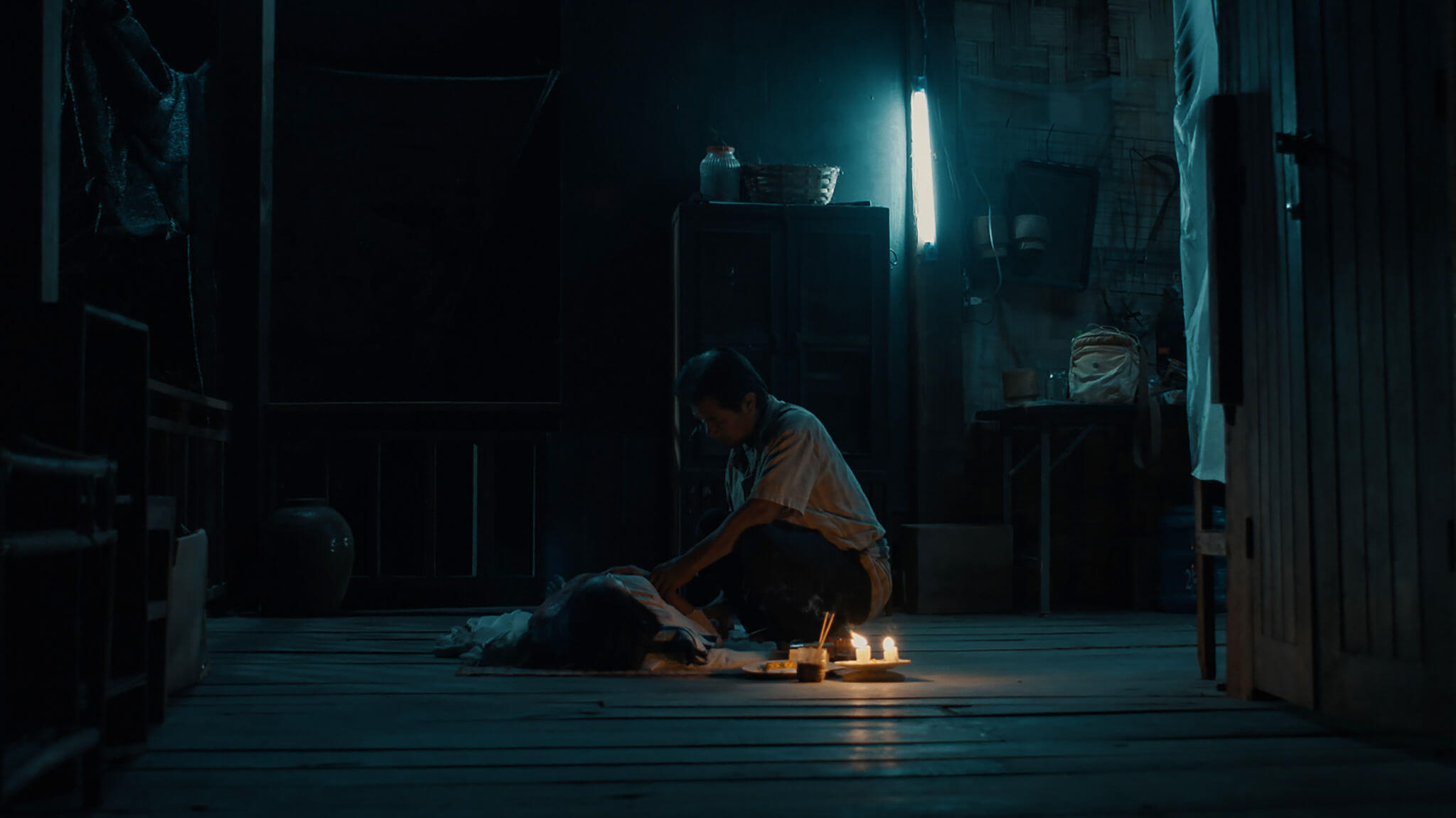
The Long Walk is a Lao film not only in origin but in influence – the film exemplifies the life of rural Lao people living under the Lao People’s Revolutionary Party, a government with a history of shocking human rights abuses and torture. In both his past and future, the main character lives in the same level of abject poverty; whether the technology of the day is solar panels or subdermally implanted ID chips, he lives the same life of desperation.
Do also examines the looming threat of globalization, with an incoming tide of English-speaking investors encouraging the boy’s father to install solar panels, even though he needs food far more than electricity. This critique of what many would consider to be benevolent development of poorer countries is interesting and important, as it highlights the self-serving nature of such efforts.
The Long Walk is brilliant; slow and methodical, it allows the mystery to unfold at a steady pace, ramping up the violence and gore as it goes.
The Long Walk is available on VOD 28th February in the UK, courtesy of Lightbulb Film Distribution.

More Film Reviews
August Underground is a 2001 extreme found footage film, written and directed by Fred Vogel with additional writing from Allen Peters. The film was produced by TOETAG Pictures with effects… Ten years ago in 1994, I was walking into the local bookstore to pick the new…wait….that was 27 years ago? Fine then, I will start over. Almost 3 decades ago,… It’s understandable why Japanese filmmakers focus so often on the feudal era in their horror cinema. It’s a setting so naturally horrific in the plight and pain of the peasant… It is hard to know where to begin when discussing the epic that is Labyrinth of Cinema, the final directorial feature of Nobuhiko Obayashi. Perhaps it is best to start… From director Banjong Pisanthanakun and writer Na Hong-jin comes a Thai-Korean, Shudder-exclusive feature exploring the thin line between humans and spirits and what happens to those who cross that line… I’m all for enjoying bad films, in fact, some of my favourite films are schlocky B-movies from the 70s. However, I would always argue that these films, whilst terrible, always…August Underground (2001) Film Review – Found Footage Filth
Fear Street Part One: 1994 Film Review – Nostalgia Soaked Horror
Ugetsu (1953) Film Review – Feudal-Era Horror
Labyrinth of Cinema (2019) Film Review – Celebrating the Magic and Power of Movies
The Medium (2021) Film Review – Shudder’s Shamanistic Mockumentary Is Far From Middling
Winnie the Pooh: Blood and Honey (2023) Film Review – Poorly-Written Tripe
Jenny is a creative copywriter living just outside of Liverpool who loves horror, board games, comics, video games and industrial metal.
